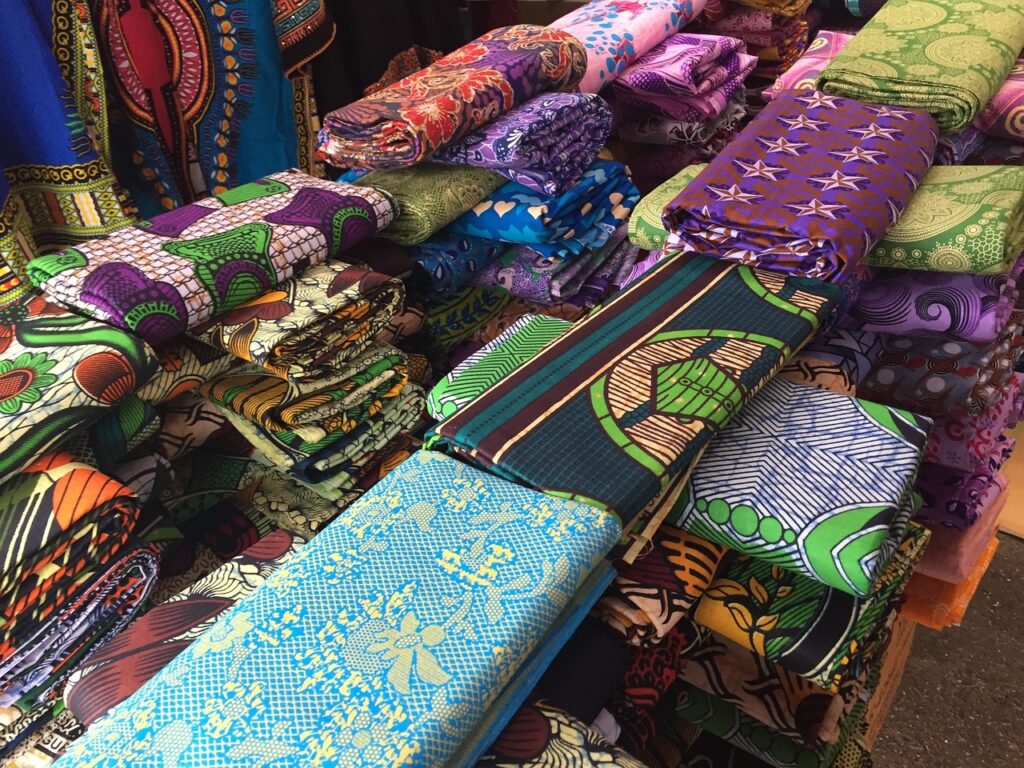
Table of Contents
A Step-by-Step Guide to Buying Property as a Foreigner in Ghana: Essential Insights and Procedures
Purchasing property in a foreign country can be a complex process, and Ghana is no exception. Foreigners are indeed allowed to buy property in Ghana, but they must navigate a series of steps that involve legal and cultural considerations. The allure of Ghana’s real estate market can be strong for investors, retirees, and those looking to experience life in this culturally diverse and economically growing nation. It’s critical for prospective buyers to understand the nuances of property rights, engage with reputable real estate agents, and follow the country’s established legal procedures throughout the acquisition process.
Integrating into a new community means respecting local customs and addressing potential challenges with informed solutions. For foreigners acquiring property in Ghana, knowledge of post-purchase responsibilities such as lease renewals, property maintenance, and community engagement can contribute to a more harmonious integration. Navigating the purchasing sequence requires attention to detail, from conducting pre-purchase due diligence to understanding the implications of documentation and registration. Each step taken with careful consideration ensures a more secure and satisfying investment.
Key Takeaways
- Engaging with reputable local agents ensures guidance through the property purchasing steps.
- Comprehending legal protocols affirms secure and lawful property transactions.
- Considerate cultural integration enriches the overall experience of buying and owning property.
Read more about the advantages and benefits of buying residential property in Accra here.
This blogpost goes further into detail on the types of residential properties to find in Accra and gives a more detailed real estate overview.

Understanding Property Rights in Ghana
When purchasing property in Ghana, it is crucial to understand the distinct types of land ownership and the legal framework governing foreign ownership. This knowledge will provide a strong foundation for securing investment.
Types of Land Ownership
In Ghana, land is typically held under three main tenure systems:
- Customary Land: Held by traditional authorities on behalf of the people.
- Leasehold Land: Can be leased for a period, usually 50 to 99 years for foreigners.
- Freehold Land: Once common but now converted to leasehold upon the sale to a non-indigenous person.
Each type of land ownership has specific stipulations that a prospective buyer must adhere to. The majority of land in Ghana is Customary Land, which is often governed by local chiefs and family heads, and transactions frequently require the consent of these authorities.
Legal Framework and Foreign Ownership
Foreign nationals are subject to certain restrictions under Ghanaian property law:
- Foreigners cannot own land outright: They can acquire leases for up to 50 years for residential purposes, and this can be renewed upon expiration.
- Registration and Due Diligence: All land transactions must be registered with the Lands Commission to ensure legitimacy and protect ownership rights.
Understanding the intricacies of Ghana’s legal framework for land acquisition helps to mitigate risks and ensure a transparent purchase process for foreigners. Legal assistance is often recommended to navigate the complexities of property transactions in Ghana.
Pre-Purchase Considerations
Before one embarks on the purchasing process of property in Ghana as a foreigner, certain crucial preliminary steps must be carefully considered. These steps align your objectives with the feasibility of the investment, ensuring a more informed and strategic property acquisition.
Determining Your Budget
Firstly, one must establish a clear and feasible budget that accounts for all purchase-related expenses. Acquisition costs in Ghana include but are not limited to the price of the property, legal fees, stamp duties, and possibly agency fees. It is imperative to consider additional costs such as renovation and maintenance expenses which can impact the overall affordability.
Choosing the Right Location
The decision on location is paramount and should align with one’s purpose for purchasing property. Whether the intent is for residential purposes or as an investment, factors like local amenities, safety, infrastructure, and proximity to urban centers can greatly affect property value and livability. Researching and visiting various locations can help narrow down the best options.
Understanding the Role of Real Estate Agents
In Ghana, real estate agents play a vital role in navigating the property market, particularly for foreigners unfamiliar with the terrain. They offer indispensable insights into market trends and legal processes. A credible agent can facilitate property viewings, provide valuation services, and assist with negotiations and documentation, acting as a liaison between all parties involved. It is essential to choose an experienced and reputable real estate agent to guide through the purchase process.
Navigating the Buying Process
When buying property in Ghana as a foreigner, it’s crucial to understand the local real estate market, adhere to legal requirements, and secure proper financing. This process can be complex, but with the right approach, one can navigate it successfully.
Searching for Property
Prospective buyers should begin by researching properties that fit their budget and preferences. It’s recommended to use reputable real estate websites or work with local real estate agents who have experience assisting foreigners. Individuals should consider factors like location, infrastructure, and potential for value appreciation.
Property Verification
Once a property of interest is found, due diligence is paramount. This involves verifying the title documents, ownership history, and ensuring the property is free from litigation. Engaging a local lawyer who specializes in real estate transactions can provide an additional layer of security to this process.
Negotiating the Purchase
Negotiation is a key step and should be handled with professionalism to arrive at a fair price. Cultural nuances play a significant role, and it’s often beneficial to have a local expert to aid in these discussions. Remember that all agreements should be documented and subject to legal review.
Securing Financing
Foreigners must typically look to private financing options or international banks, as local financing might be difficult to obtain. Interested buyers should ensure they have a clear understanding of the mortgage terms, interest rates, and repayment plans. Pre-approval for financing can also strengthen the buyer’s negotiating position.
Legal Procedures and Documentation
When purchasing property in Ghana, it’s crucial for foreigners to navigate the legal landscape with precision. This includes drafting a clear sales agreement, securing required permits and clearances, and ensuring the registration and transfer of the property title goes smoothly.
Drafting the Sales Agreement
The sales agreement is a legally binding document between the seller and the buyer. This agreement should outline all critical terms, such as the property description, purchase price, and payment plan. It’s advisable to have a legal professional assist with the drafting to ensure all local property laws are adhered to and that the rights of the foreign buyer are protected.
Obtaining Necessary Permits and Clearances
Before finalizing the property purchase, buyers must obtain various permits and clearances from local authorities. This typically includes land search certificates confirming the seller’s right to sell the property and ensuring the land is free from disputes or encumbrances.
Registration of Property and Title Transfer
The final step in acquiring property in Ghana involves the registration of property and the title transfer. This process legally records the purchase and changes the property’s ownership. It usually requires submitting the sales agreement, title deeds, and a transfer of ownership form to the Ghanaian Lands Commission. Successful registration ensures the buyer is recognized as the new lawful owner by the Ghanaian government.
Post-Purchase Considerations
Once the property is secured, understanding and managing ongoing responsibilities is essential for foreign investors in Ghana.
Dealing with Property Taxes
In Ghana, property owners are obligated to pay property taxes annually. Tax rates vary depending on the location and valuation of the property. An official assessment determines the property’s rateable value, which serves as the basis for the tax calculation. Taxes are typically payable to the local authority within which the property is located.
Understanding Residency Laws
Residency laws can influence a foreigner’s rights regarding property ownership. Although purchasing property doesn’t automatically grant residency in Ghana, property owners may apply for a residence permit. Understanding the specific requirements and limitations is crucial for compliance and legal residency status.
Investing in Property Insurance
Property insurance is an important consideration to protect one’s investment. Property insurance policies in Ghana cover various risks, including fire, theft, and natural disasters. Foreign owners should ensure that their insurance is comprehensive and reflects the true value of the property and the contents within it. It’s advisable to consult with a reputable insurance provider to tailor the insurance to the specific needs of the property.
Cultural Etiquette and Integration
When purchasing property in Ghana as a foreigner, understanding and respecting local customs and social practices is imperative. This integration fosters positive relations and helps navigate the local real estate market.
Building Relationships with Local Community
In Ghana, fostering personal relationships is crucial for successful integration within the community. One should take time to engage in community events and be open to learning about and participating in local traditions. This approach can lead to lasting relationships that are beneficial both personally and in property matters.
Adapting to Local Business Practices
Business transactions, including real estate, often follow traditional protocols in Ghana. Patience and respect for these practices are important. It’s advisable for foreigners to learn about the local business etiquette, such as the significance of verbal agreements and informal discussions, which hold considerable weight in Ghanaian commerce. Understanding these nuances is key to a smooth property acquisition process.
Potential Challenges and Solutions
When buying property as a foreigner in Ghana, one may encounter a range of challenges. These hurdles can be addressed by becoming well-versed in the local property laws, engaging with trustworthy professionals, and understanding the financial intricacies associated with such transactions.
Dealing with Legal Disputes
Legal disputes can arise from unclear land titles or disagreements with sellers. To navigate these issues, one should ensure thorough due diligence is performed. This includes:
- Conducting a title search: Verify the property title is legitimate and the seller has the legal right to sell.
- Seeking legal assistance: Hire a reputable local lawyer who specializes in Ghanaian property law.
Managing Construction and Development
When managing construction and development, it’s vital to:
- Hire credible contractors: Vetting and selecting contractors with proven records ensure quality work.
- Obtaining necessary permits: One must comply with all local construction codes, which includes securing the right permits before construction begins.
Mitigating Currency and Market Risks
Currency fluctuations and market volatility can affect the value of your investment. To mitigate these risks:
- Use a fixed exchange rate: Lock in an exchange rate to protect against currency volatility.
- Understanding the market: Keep abreast of Ghana’s property market trends to make informed decisions.